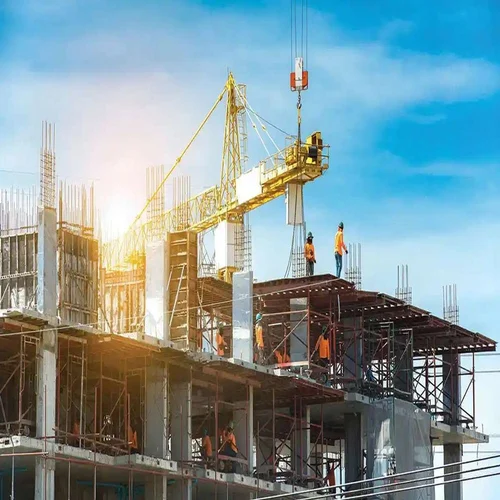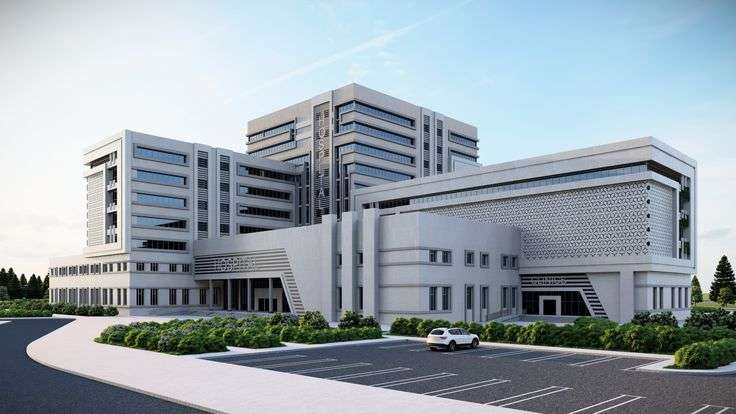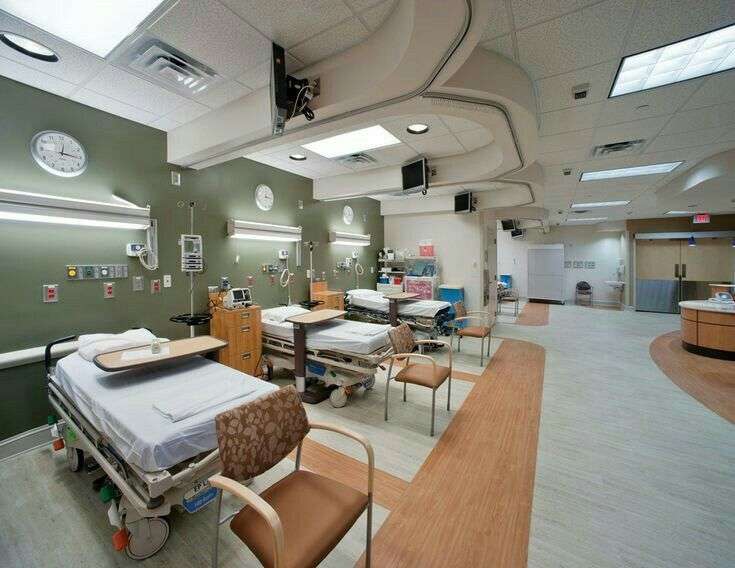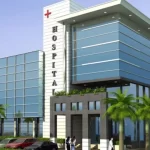
Building a Multi-specialty Hospital in India: What You Need to Know
July 18, 2024
Discover the Best Interior Design for IVF Hospital
July 29, 2024Building a hospital is a complex and critical task. It involves more than just erecting walls and a roof; it requires creating a safe, durable, and efficient environment where lives are saved every day. This is where Hospertz Healthcare Consultancy steps in, leveraging Reinforced Cement Concrete (RCC) to ensure top-quality hospital construction. Let’s explore why RCC is essential for building hospitals and how Hospertz can help you achieve your construction goals.
What is RCC?
- Definition and Composition: Reinforced Cement Concrete (RCC) is a composite material made from concrete and steel reinforcement bars. The concrete provides compressive strength, while the steel reinforcement adds tensile strength, making RCC an incredibly robust construction material.
- Historical Background: Concrete has been used for construction since ancient times, but the concept of reinforcing it with steel emerged in the 19th century. Since then, RCC has become a cornerstone of modern construction, particularly in projects requiring high strength and durability, such as hospitals.
The Role of RCC in Hospital Construction
- Versatility in Construction: RCC’s versatility makes it suitable for various construction applications. From foundations and columns to beams, slabs, and walls, RCC can be molded into any shape and size, offering architects and engineers the flexibility to design structures that meet specific needs.
- Strength and Durability: Hospitals must withstand various stresses and strains, and RCC ensures the structure remains intact and safe over time.
RCC vs. Traditional Construction Methods
- Comparison with Other Materials: When compared to traditional construction materials like wood or brick, RCC stands out due to its superior strength and longevity. While wood is prone to decay and brick structures can suffer from mortar issues, RCC offers a more reliable and long-lasting solution.
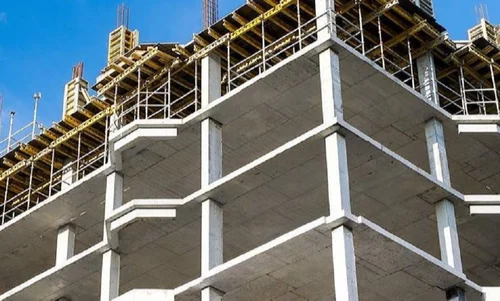
Advantages of RCC
- RCC’s advantages include its ability to handle both compressive and tensile forces, resistance to weathering and fire, and relatively low maintenance requirements. These benefits make RCC a preferred choice for constructing hospitals, where safety and reliability are paramount
Structural Integrity of Hospitals
- Importance of Strong Foundations: A hospital’s foundation must be incredibly strong to support the building’s weight and the heavy medical equipment inside. RCC provides the necessary strength to create stable foundations that can endure for decades.
- Earthquake Resistance: In regions prone to earthquakes, RCC is especially valuable. Its ability to absorb and dissipate energy from seismic activity helps prevent catastrophic failures, ensuring that hospitals remain operational even after an earthquake
Safety and Security
- Fire Resistance: RCC structures are inherently fire-resistant. Unlike wood, which can easily catch fire, or steel, which can lose strength at high temperatures, RCC maintains its integrity in the event of a fire, providing crucial extra time for evacuation and firefighting efforts.
- Impact Resistance: Hospitals must withstand various impacts, whether from natural disasters or accidental collisions. RCC’s robust nature ensures the building remains secure, protecting both patients and staff.
Cost-effectiveness
- Long-term Investment Benefits: While the initial cost of RCC construction may be higher than some alternatives, the long-term benefits far outweigh these costs. RCC structures require less frequent repairs and renovations, leading to significant savings over the building’s lifespan.
- Maintenance Costs: RCC’s durability means lower maintenance costs. Unlike other materials that may need regular upkeep or replacement, RCC structures remain in good condition with minimal intervention. Hospertz ensures that their projects are cost-effective with minimal maintenance needs.
Design Flexibility
- Architectural Possibilities: RCC allows for a wide range of architectural designs. Architects can create intricate and aesthetically pleasing hospital designs without compromising on structural integrity.
- Customization for Hospital Needs: Every hospital has unique requirements, from specialized operating rooms to patient wards. RCC’s flexibility allows for customization to meet these specific needs, ensuring that the hospital functions efficiently.
Sustainability and RCC
- Environmental Impact: RCC can be a sustainable choice for hospital construction. The production of concrete can incorporate recycled materials, and its longevity reduces the need for frequent rebuilds, lowering the overall environmental footprint
- Energy Efficiency: RCC structures can be designed to be energy-efficient, with proper insulation and thermal mass properties that help regulate indoor temperatures, reducing the need for artificial heating and cooling.
Challenges in Using RCC
- Common Issues and Solutions: Like any construction material, RCC has its challenges, such as ensuring proper mixing and curing of concrete. However, with careful planning and quality control, these issues can be effectively managed.
- Quality Control Measures: Implementing strict quality control measures during construction ensures that the RCC structures meet the required standards and perform as expected.
Future of RCC in Hospital Construction
- Technological Advancements: Advancements in technology are continually improving the quality and efficiency of RCC. Innovations such as self-healing concrete and enhanced reinforcement techniques are set to revolutionize hospital construction.
- Emerging Trends: The future of RCC in hospital construction looks promising, with trends focusing on sustainability, resilience, and smart construction practices that enhance the overall functionality of healthcare facilities
Conclusion
In conclusion, RCC is an indispensable material in hospital construction due to its strength, durability, and versatility. It provides the necessary structural integrity, safety, and cost-effectiveness required for building hospitals that can withstand the test of time. As technology advances, RCC will continue to play a crucial role in creating healthcare facilities that are safe, efficient, and sustainable. Hospertz Healthcare Consultancy is committed to leveraging RCC’s benefits to deliver top-quality hospital construction projects.

